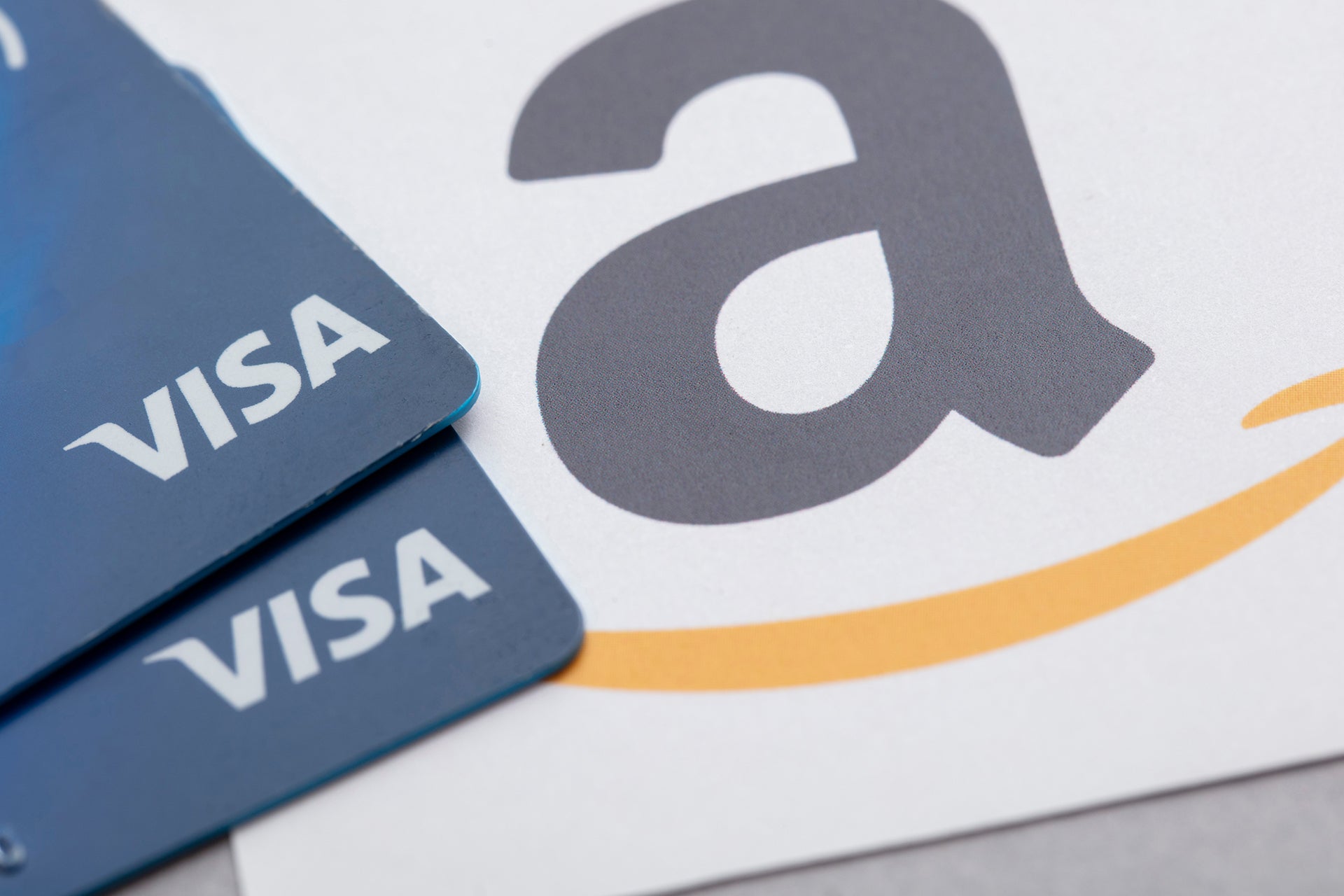The UK fintech community is unsurprised that Amazon and Visa have reached a global agreement allowing customers to use Visa credit cards on the online shopping platform. However, startups also smell blood in the water as retailers, regulators and consumers continuously challenge credit card companies.
“While this deal shows the power of the Amazon brand, the saga has highlighted a fundamental need for new solutions that benefit every retailer rather than acting as a short-term sticking plaster for the few,” Roger De’Ath, UK country manager at open banking unicorn TrueLayer, tells Verdict.
“With alternatives such as open banking that can move money at a fraction of the cost and time through secure account-to-account payment, the industry no longer needs to be held hostage by card networks for all transactions.”
The news of the deal comes after Amazon threatened to ban Visa credit cards from being used on its UK platform in November, a move which was welcomed by the fintech community at the time. Amazon accused Visa of charging extortionate interchange fees. The payments provider hiked its processing prices after Brexit enabled it to ignore a EU-wide cap on interchange fees in Britain.
Amazon said the fees threatened the competitive prices offered to users. Visa countered, saying the move threatened “consumer choice.”
The ban was supposed to be enforced in January, but Amazon postponed it days before it was due to snap into action. The two parties said they were working on a resolution to the conflict.
How well do you really know your competitors?
Access the most comprehensive Company Profiles on the market, powered by GlobalData. Save hours of research. Gain competitive edge.

Thank you!
Your download email will arrive shortly
Not ready to buy yet? Download a free sample
We are confident about the unique quality of our Company Profiles. However, we want you to make the most beneficial decision for your business, so we offer a free sample that you can download by submitting the below form
By GlobalDataOn Thursday 17 of February, Amazon and Visa announced that they had signed a global deal. The deal will enable Amazon customers to use Visa credit cards to pay for their wares around the world.
Visa has said that it “is pleased to have reached a broad, global agreement with Amazon” that also included terms of “a joint commitment to collaboration on new product and technology initiatives to ensure innovative payment experiences for our customers in the future.”
Fintech startups see an opening after Amazon and Visa deal
The schism between Amazon and Visa has been a hot topic among fintech companies since it started, with many having used the conflict as an opportunity to flog their products. The news on Thursday was met with more of the same.
“While the agreement which allows consumers to continue using their Visa card for Amazon purchases is unsurprising, I think it will be interesting to see how Amazon prioritises different payment options for consumers in 2022,” says Ben Goldring, director and head of financial services at finnCap Cavendish.
“I expect Amazon may privilege alternative payment rails which either provide enhanced SKU-level data and reactivation potential [like buy-now-pay-later companies] or lower cost and chargeback rations [such as] open banking payment providers.”
Siamac Rezaiezadeh, director of product marketing at GoCardless, echoes the sentiment, saying that “businesses are now pushing back against unfavourable terms, ones they historically had little choice but to accept.”
“The landscape has now changed dramatically with the rise of BNPL and open banking-enabled payments, both of which are increasingly popular with consumers,” he continues. “This gives businesses a genuine alternative to the card schemes. Replacing costly cards is now a viable, and perhaps better, option for every company, particularly as they do more business online – an environment which cards were simply not designed for.”
Amazon is not alone in having taken Visa to task: UK fashion retailers Levi, Superdry and AllSaints sued Visa and Mastercard in November 2021. They sought compensation for historic charging fees in breach of competition laws. Supermarket chains Sainsbury’s, Asda and Morrisons had filed a similar suit earlier in the year.
Those cases followed a UK Supreme Court ruling in 2020. The ruling said that the fees imposed by the two credit card companies for every transaction were a breach of both EU and UK competition law.
Last year, the UK Payment Systems Regulator conducted a review into card fees which showed that they had “increased significantly in recent months”. It is currently investigating whether any action is required on the issue.






Related Company Profiles
Visa Inc
Mastercard Inc
Superdry Plc